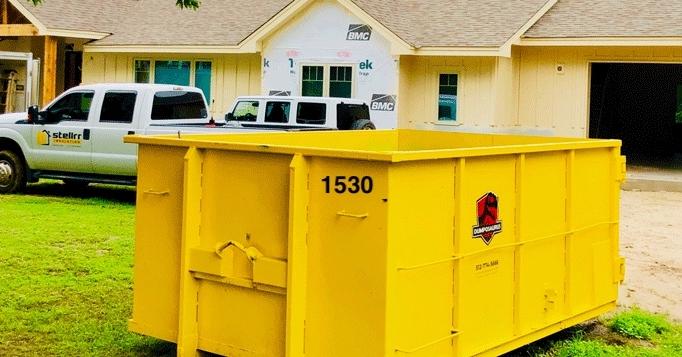Efficient waste disposal is necessary for home projects, whether it’s a renovation, a thorough decluttering, or a landscaping overhaul. Renting a residential dumpster can be an invaluable solution, providing a hassle-free way to manage large volumes of waste. However, the process of renting a dumpster requires careful consideration and planning.
From understanding local regulations to optimizing space and ensuring safety, a successful dumpster rental hinges on several key factors. This article offers essential tips and strategies to facilitate a seamless and stress-free residential dumpster rental Denver.
Assess Your Waste Management Needs
Starting any home project requires a thorough understanding of your waste management needs. Assess the anticipated volume and types of waste you’ll be generating. Go for a dumpster size slightly larger than estimated to prevent overflow and accommodate all discarded items effectively.
Know Local Regulations and Zoning Laws
When looking for a dumpster rental Denver, it is crucial to Understand the local regulations to avoid legal issues during the rental period. Check for permit requirements and zoning laws, especially if placing the dumpster on public property or near streets. Strategically plan the dumpster’s placement on your property to ensure easy access while avoiding obstructions.
Talk To the Rental Company
Open communication with the rental company is vital for a seamless experience. Discuss project details specific needs, and inquire about prohibited items or weight limits associated with the dumpster size. Understanding these parameters avoids extra fees or offloading items to comply with weight limits.
Ensure Safety Measures
When the dumpster arrives, ensure it’s placed on a flat, stable surface to prevent tipping. Avoid soft ground or areas near hazards like power lines or trees. Proper placement facilitates the safe loading and unloading of waste materials.
Evenly distribute the weight of discarded items within the dumpster to maintain stability. Avoid overloading or unevenly loading the container, which can lead to imbalance and potential hazards during transportation.
Also, follow the dumpster rental company’s guidelines regarding the materials allowed. Prohibited items such as hazardous waste, chemicals, or electronics should not be disposed of in the dumpster to prevent environmental risks or fines.
Schedule Pick-Up Dates
Coordinate with the rental company to schedule pick-up dates after the project’s completion. Timely removal of the dumpster is crucial for proper waste disposal. Ensure clear access for the rental company’s trucks during drop-off and pick-up for efficient operations.
Review the Rental Contract
Before signing the rental contract, review it thoroughly. Pay attention to the rental period, pricing, prohibited items, and potential additional charges. Consider environmental impact by sorting materials for recycling or donation before disposal to minimize landfill waste.
Optimize Space and Access
Maintaining ample space around the dumpster and ensuring clear access for the rental company’s trucks during both drop-off and pick-up is crucial. These measures facilitate efficient waste disposal operations and contribute to a cleaner, more organized space throughout the project.
Summary
If you are looking for a dumpster rental Denver, plan carefully and adhere to local regulations. Understanding your waste volume, adhering to zoning laws, and communicating effectively with the rental company is vital. Prioritize safety by distributing weight evenly, scheduling pick-up dates, and reviewing rental contracts meticulously.
Optimize space for easy access during drop-off and pick-up to promote efficient waste disposal. Implementing these strategies streamlines home projects and ensures compliance, efficiency, and a cleaner living environment.

